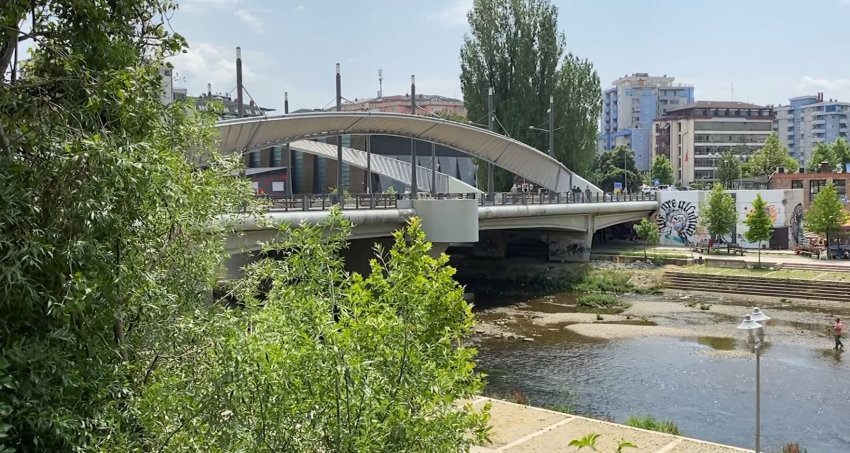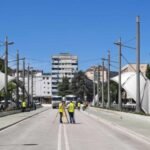The Ibër Bridge seems to have become a contentious issue between the EU and Kosovo.
The Prime Minister of Kosovo, Albin Kurti, has stated that the bridge will be opened and that there is no reason for it to remain closed.
However, the EU and the QUINT countries have not agreed with Kurti.
Moreover, the EU has even warned of additional measures against Kosovo if the bridge is opened.
The European Union spokesperson, Peter Stano, stated that the bloc has made its stance clear regarding the closure of nine branches of the Serbian Post in Kosovo by the authorities, as well as the Kosovo Government’s intention to open the bridge over the Ibër River for traffic.
“Instead of steps that would lead to de-escalation, many more unilateral steps and decisions have been taken that lead towards escalation. At that time, we said that the measures are progressive, they can be intensified or eased depending on the development of the situation. This part addresses the first part of the question, about what we will do [after the latest decisions of the authorities in Kosovo]. So, we have measures in place, and these measures can be intensified if all the EU actors agree on such a thing,” Stano said.
Former KLA commander, Hafir Hoxha, in a statement for “Bota sot”, said that this bridge has been closed by the EU and KFOR since 1999, and now the Albanians want to open it to communicate and live normally, with the bridge serving the purpose of bringing people closer and fostering tolerance.
“A bridge is a work of art that allows you to cross a natural or artificial obstacle (depression, water flow, communication route, valley, canyon) by passing over it.
In Kosovo in 1998/1999, there was a war between Serbia as the occupier with its armed police, military, paramilitary forces, and the native Albanian population, which made up over 95% of Kosovo’s population.
Since 1999, KFOR and the EU have closed the bridge, and it has not been functioning to connect the two parts of the city of Mitrovica, the north with Serbs and the south with Albanians.
Even though the Albanians were raped, massacred, burned, forcibly expelled, and terrorized by Serbian forces, today, it is precisely the Albanians who wish to open the bridge, to communicate and live normally, with the bridge serving the purpose of bringing people closer and fostering tolerance!” he expressed.
Hoxha questions how it is possible that Serbs in Kamenica, Gjilan, Kllokot, Shtërpcë, and everywhere else have never had any problems or provocations with Albanians, only in the north there are problems.
“And strangely enough, today the EU, KFOR, and Serbs are against the institutions of the state of Kosovo, against the desire and readiness of the Albanian people of Kosovo to open the bridge, and worse still, they are warning of sanctions against Kosovo and threatening that if the bridge is opened for the movement of people and goods, they will find insecurity as a pretext and will sanction Kosovo!?
How is it possible that Serbs in other parts of Kosovo in Kamenica, Gjilan, Kllokot, Shtërpcë, and everywhere else never had any problems or provocations from the Albanians who are surrounded by them and are safer than the Serbs in Belgrade, but you fear that security will be disrupted if the bridge between the divided city is opened!? Absurdity and completely illogical behavior of the EU and KFOR regarding the opening of the bridge,” he concluded for “Bota sot”.







